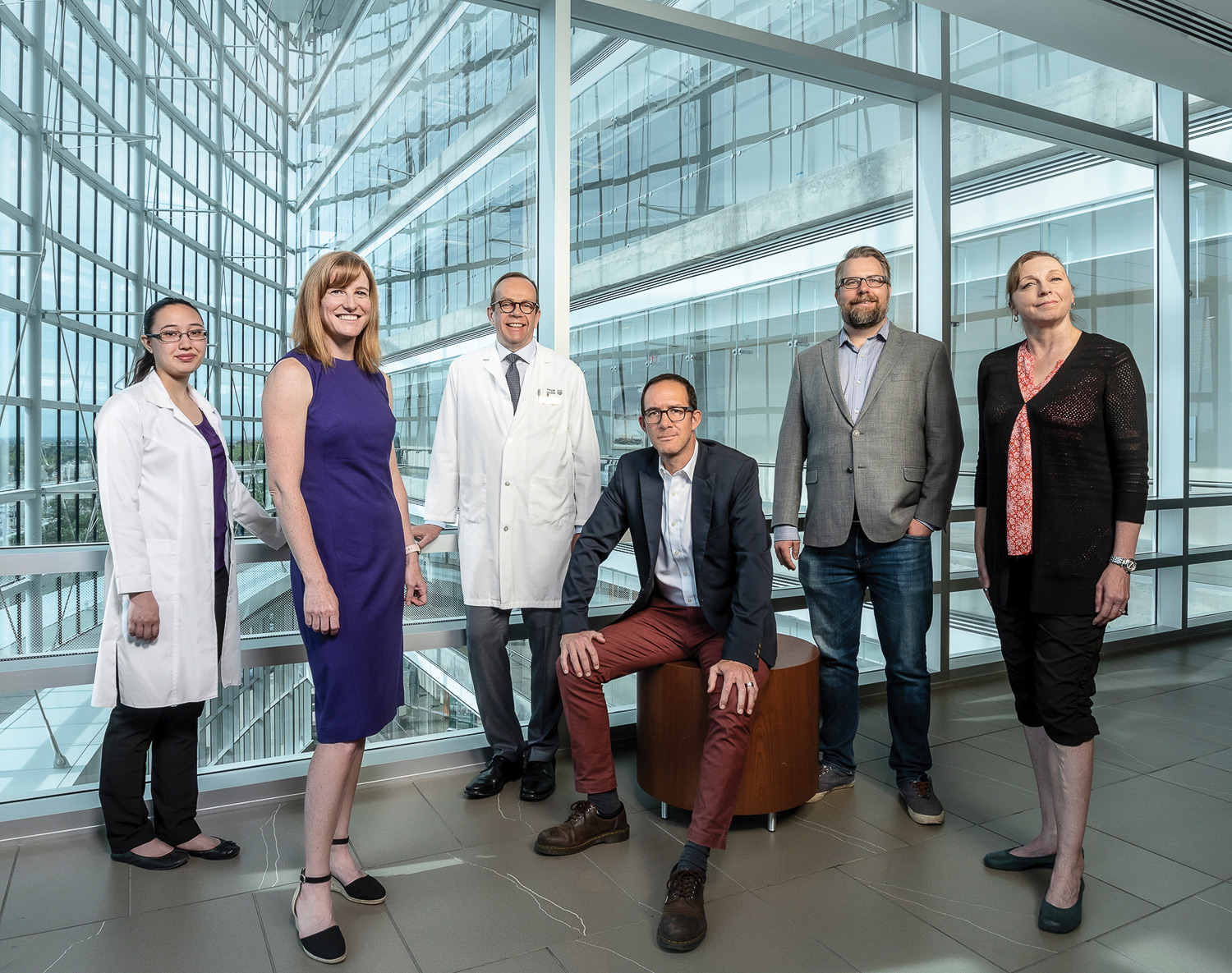
Leina Saito, graduate student, medical microbiology and immunology; Jennifer McCombe, associate clinical professor and MS neurologist; Chris Power, vice-dean research, MS neurologist and co-director, MS Centre; Bradley Kerr, associate professor, anesthesiology and pain medicine, co-director, MS Centre; Jason Plemel, assistant professor, neuroscientist; Maria Sprentz, person with MS
How do you solve what until now has been virtually unsolvable? Multiple sclerosis affects more than 77,000 Canadians and despite the best efforts of researchers over decades, progress toward finding both a cause and a cure has been slow. For scientists at the University of Alberta MS Centre and the Neuroscience and Mental Health Institute, the answer lies in uniting researchers, clinicians, patients and community partners in a concerted, coordinated effort.
Since 2014, the MS Centre has sparked some of Canada's top scientific minds seeking answers for issues involving multiple sclerosis-including neurological disability, inflammation and pain. Led by co-directors Chris Power and Brad Kerr, and home to more than 20 experts in research and clinical care, the MS Centre shows what can be achieved when leaders from science and medicine unite within an academic centre.
"We are stronger together," said Power. "Bringing different skills to bear on the same problem will ultimately help us figure out MS."
The centre has fostered strong partnerships with MS patients and members of the wider community such as the MS Society of Canada and the University Hospital Foundation. While focused on growing MS research and education and developing a new generation of health-care professionals and researchers, the team is mindful to always remain patient-centred.
"It's not all about the doctors and scientists anymore," said Kerr. "The researcher-patient interaction we have here is the envy of other institutions. People look to our centre and say, 'We want to do what they're doing.' "